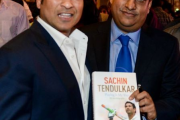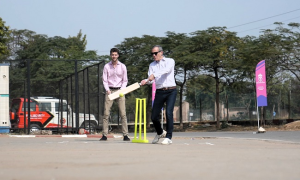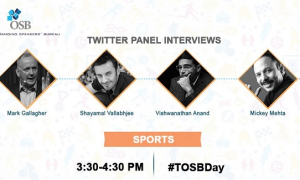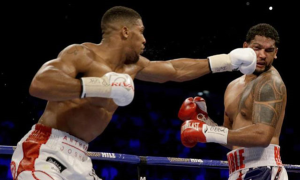The 1992 Cricket World cup delayed a year due to the Gulf war was held in Australia and New Zealand for the first time with 9 teams competing for the ultimate prize in ODI. The surprise champions of 1987, Australia were one of the favorites but history was against them as no host nation had won the world cup till then.
The world cup was full of surprises starting with the innovation by Kiwi Captain Martin Crowe to use the spinner Dipak Patel to open the bowling to slowdown the scoring and to upset the opposition plans. Another masterstroke was the approach by Mark Greatbatch to go over the infield in the first 10 overs of field restriction. This was later perfected by Jayasuriya. The usage of bits and pieces players and astute leadership by their best batsman led the Kiwis to another world cup semi final berth.
The highest scoring match was between Zimbabwe and Sri Lanka where a spirited Arjuna Ranatunga led Sri Lanka chase 313 runs successfully. The Zimbabwean score was boosted by debutante Wicket Keeper Andy Flower’s century. The lowest score of the world cup was 74 by Pakistan, who were lucky to split the points with England due to rain. Both the teams ended at the bottom of the table.
Australia started the world cup by losing to their Trans-Tasman rivals New Zealand and then to South Africa. A one run win against India gave them a breather but inconsistent performances led them out of the world cup. The South Africans led by Kepler Wessels, playing their first world cup rode on outstanding performances by Peter Kirsten and Allan Donald reached the semi finals.
India started their campaign with a loss to England and a nail biting thriller one run loss to Australia. Hampered by losing the match against Sri Lanka to the rain and losing some evenly contested matches, an inconsistent India bowed out of the world cup. The only bright spot in their campaign was the victory over their arch-rivals Pakistan. West Indies started their campaign well by winning against Pakistan but lost some crucial matches in between to agonizingly lose a semi final spot by a point difference.
England was one of the favorites to win this world cup boasting a great batting line up with good bowling attack. They even roped in an aging Ian Botham for a last hurrah. They were one of the most consistent teams and easily managed a semi final spot. Pakistan lost Saeed Anwar and young fast bowler Waqar Younis to injury just before the world cup but they were led by the charismatic Imran Khan playing his fifth world cup. Some of the team members were handpicked by Imran and were unknown quantities for the opposition. They started their campaign disastrously by losing to 3 of the 5 matches, rain helping them gain a point from a losing match with England. With their backs to their walls, the team then beat Australia, Sri Lanka and unbeaten Kiwis to just scrape through the semi finals.
The semi finals had very contrasting results. The kiwis riding on a majestic 91 by skipper Martin Crowe were defeated by a resolute Pakistan led by swashbuckling 60 off 37 balls by Inzamam-ul-haq and cool finish by Javed Maindad and Moin Khan. England beat South Africa by the controversial rain rule which changed from 22 runs off 13 balls to 22 runs off 1 ball due to rain.
The final played at Melbourne Cricket Ground and attended by a record crowd had a fairy tale ending. On paper England was the favorite but Pakistan had peaked at the right time. Pakistan initially on the back foot after losing both openers cheaply, consolidated with Imran and Maindad. Although the run scoring was very slow, they built a platform for Inzamam and Wasim Akram to blast through the final overs and reach 249 runs. England quickly lost 4 important wickets to some incisive bowling by Aaqib Javed and Mushtaq Ahmed. When Neil Fairbrother and Allan Lamb revived the run chase, Imran’s masterstroke of introducing Wasim Akram in the 34th over worked wonders with Wasim removing both Lamb and Chris Lewis in successive deliveries in one of the best reverse swing dismissals.
The world cup’s moment was defined by Jonty Rhodes who dismissed Inzamam by running him out with a leap in the air, picture perfect. But the world cup had the dark shadow of insipid rain rules set by Richie Benaud which led to many controversial targets set, none worse than the semi final. The best captains were Imran Khan and Martin Crowe. Crowe inspired a team of limited talent by innovative captaincy and leading from front. The Kiwis topped the table with just one loss against the mercurial Pakistanis, would have gone and attained glory had Imran’s army not stopped them in semis.
Pakistan deservingly won the world cup mainly due to the inspirational guidance by their skipper Imran Khan. His decisions to float Inzamam and use him effectively in the matches, bringing himself to No. 3 in the all important final to consolidate were commendable. Even after having a terribly out of form Salim Malik, the batting was strengthened by Javed Miandad who was consistent all through the tournament. The subtle and timely bowling changes with the young bowling attack were critical. The world cup win and subsequent retirement in ODIs was fitting end to a great career.
The world cup saw the end of careers of many great players but started the exciting phase of the best ODI batting generation with Sachin Tendulkar, Brian Lara and Inzamam-ul-Haq.
Part one of the series looking back at the world cup archive.
Tags: AUS, Australia, Benson & Hedges World Cup, Cricket, Cricket World cup 1992, New Zealand, NZ










